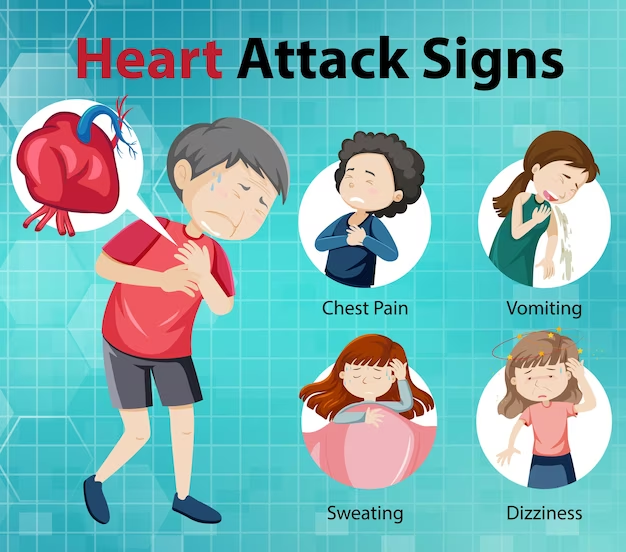Introduction:
Chest pain that radiates to the left arm and is accompanied by sweating can be a worrisome and alarming experience. It is crucial to understand the underlying causes, associated symptoms, and necessary precautions to prevent potentially life-threatening situations. In this blog, we will delve into the various reasons behind such chest pain, the symptoms that may accompany it, and some essential precautions to take when experiencing such symptoms.
Causes of Chest pain;
Causes of Chest Pain Radiating to the Left Arm
- Coronary Artery disease (CAD) : Atherosclerosis, a buildup of plaque in the coronary arteries, can lead to reduced blood flow to the heart muscle, causing chest pain that may radiate to the left arm.
- Angina: This is a type of chest pain that is caused by a narrowing of the coronary arteries. Angina can be triggered by exercise, stress, or cold weather. Other symptoms of angina include shortness of breath, nausea, and lightheadedness.
- Aortic dissection: This is a tear in the aorta, the largest artery in the body. Aortic dissection can cause sudden, severe chest pain that radiates to the back or neck. Other symptoms of aortic dissection include shortness of breath, nausea, and lightheadedness.
- Pleurisy: This is an inflammation of the lining of the lungs. Pleurisy can cause chest pain that is worse when you breathe deeply or cough. Other symptoms of pleurisy include shortness of breath, fever, and cough.
Opens in a new window
- Muscle strain: This can cause chest pain that is felt in the front of the chest or the upper back. Muscle strain is usually caused by overuse or injury. Other symptoms of muscle strain include pain that is worse with movement, swelling, and bruising.
Opens in a new window
- Gastroesophageal Reflux Disease (GERD): Stomach acid flowing back into the esophagus can cause chest pain and discomfort, sometimes radiating to the left arm
- Anxiety and Panic Attacks: Psychological factors can manifest as chest pain and may also lead to sweating and left arm discomfort.
Symptoms ;
Symptoms related to causes:
- Shortness of breath
- Nausea
- Lightheadedness
- Dizziness
- Fainting
- Palpitations
- Jaw pain
- Neck pain
- Back pain
Precautions ;
If you experience chest pain radiating to the left arm with sweating, it is important to seek medical attention immediately. Depending on the cause, treatment may include medication, surgery, or lifestyle changes.
Here are some tips to help you stay safe if u experience chest pain radiating to left arm
- Seek Immediate Medical Attention: Never ignore chest pain, especially if it radiates to the left arm and is accompanied by sweating. Call emergency services immediately or go to the nearest hospital for evaluation
- Take Prescribed Medications: If you have a history of heart conditions, make sure to take prescribed medications as directed by your healthcare provider. These may include antiplatelet agents, beta-blockers, or nitroglycerin.
- Follow a Heart-Healthy Diet: Adopt a diet low in saturated fats, cholesterol, and sodium. Incorporate fruits, vegetables, whole grains, and lean proteins to support heart health.
- Engage in Regular Physical Activity: If your doctor approves, maintain a regular exercise routine to promote cardiovascular fitness. Start with low-impact activities and gradually increase intensity as advised by your healthcare provider.
- Manage Stress: Find healthy ways to cope with stress, such as meditation, deep breathing exercises, yoga, or spending time in nature. Seek professional help if you experience severe anxiety or panic attacks.
- Quit Smoking and Limit Alcohol Intake: Smoking damages the heart and blood vessels, while excessive alcohol consumption can contribute to heart problems.
- Monitor Blood Pressure and Cholesterol Levels: Uncontrolled hypertension and high cholesterol can contribute to heart-related issues.
- Maintain a Healthy Weight: If you are overweight or obese, strive to achieve and maintain a healthy weight through a combination of a balanced diet and regular exercise.
- Know your Family History: Be aware of any family history of heart disease, as this may increase your risk.
- Educate Yourself: Learn about the symptoms of heart-related issues and their risk factors. Stay informed about the warning signs and take prompt action if you experience any concerning symptoms.
